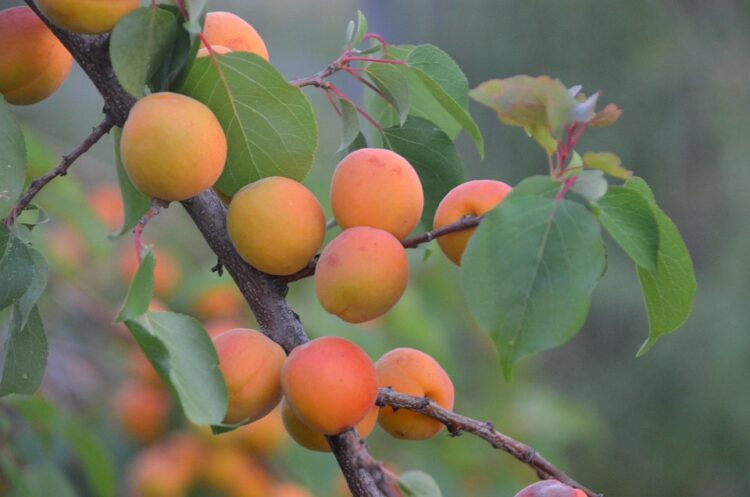[ad_1]
The Benefits of Organic Farming: Harvesting Health
Organic farming is a method of agriculture that prioritizes the use of natural inputs and practices to cultivate crops and raise livestock. This approach focuses on sustainability, biodiversity, and environmental conservation, while also promoting the health and well-being of both consumers and farmers. In recent years, organic farming has gained popularity due to its numerous benefits for human health, the environment, and the economy.
Health Benefits of Organic Farming
Organic farming produces food that is free from synthetic pesticides, herbicides, and fertilizers, which have been linked to various health problems, including cancer, hormonal disruptions, and neurological disorders. By eliminating these harmful chemicals, organic farming creates a safer and healthier food supply for consumers. Organic fruits and vegetables also tend to have higher levels of antioxidants, vitamins, and minerals, making them more nutritious and beneficial for overall health.
Organic farming practices also prioritize the well-being of farm animals, ensuring they are raised in humane conditions and are not exposed to antibiotics or growth hormones. This results in higher quality meat and dairy products that are free from harmful residues and additives, promoting better health for consumers.
Environmental Benefits of Organic Farming
Organic farming is based on principles of sustainability and environmental stewardship, aiming to minimize the impact of agriculture on the planet. By avoiding synthetic chemicals and promoting natural pest control methods, organic farmers help protect soil health, water quality, and biodiversity. Organic farming also reduces greenhouse gas emissions and promotes carbon sequestration, contributing to climate change mitigation.
Organic farming practices such as crop rotation, cover cropping, and composting help improve soil fertility and structure, leading to higher yields and healthier ecosystems. By promoting biodiversity and natural habitats on farmland, organic farming supports pollinators, beneficial insects, and wildlife, creating a more balanced and resilient agricultural system.
Economic Benefits of Organic Farming
Organic farming offers numerous economic benefits for farmers, consumers, and society as a whole. Organic products often command premium prices in the marketplace, reflecting the higher costs associated with organic production and certification. By selling organic products, farmers can access niche markets and diversify their income streams, reducing their reliance on volatile commodity prices.
Organic farming also creates opportunities for rural development and job creation, as organic farms tend to be smaller and more labor-intensive than conventional farms. By supporting local and sustainable agriculture, consumers can contribute to the growth of their communities and the preservation of rural landscapes. Additionally, organic farming reduces the need for costly inputs such as synthetic fertilizers and pesticides, leading to lower production costs and higher profitability in the long run.
Common Questions About Organic Farming
What is the difference between organic and conventional farming?
Organic farming relies on natural inputs and practices to cultivate crops and raise livestock, while conventional farming uses synthetic chemicals and technologies to maximize yields and profits. Organic farming promotes sustainability, biodiversity, and environmental conservation, while conventional farming focuses on efficiency, productivity, and cost-effectiveness.
Are organic products healthier than conventional products?
Organic products are free from synthetic pesticides, herbicides, and fertilizers, making them safer and healthier for consumers. Organic fruits and vegetables also tend to have higher levels of antioxidants, vitamins, and minerals, making them more nutritious and beneficial for overall health. Organic meat and dairy products are raised in humane conditions and are free from antibiotics and growth hormones, promoting better health for consumers.
Is organic farming more expensive than conventional farming?
Organic farming can be more expensive than conventional farming due to higher labor costs, certification fees, and lower yields. However, organic products often command premium prices in the marketplace, reflecting the higher costs associated with organic production and certification. By selling organic products, farmers can access niche markets and diversify their income streams, reducing their reliance on volatile commodity prices.
How can consumers support organic farming?
Consumers can support organic farming by purchasing organic products from local farmers markets, grocery stores, and online retailers. By choosing organic products, consumers can promote sustainability, biodiversity, and environmental conservation, while also supporting the health and well-being of farm animals and farm workers. Consumers can also advocate for policies that promote organic farming and sustainable agriculture at the local, state, and national levels.
Conclusion
Organic farming offers a wide range of benefits for human health, the environment, and the economy. By prioritizing natural inputs and practices, organic farmers create a safer and healthier food supply for consumers, while also promoting sustainability, biodiversity, and environmental conservation. Organic farming supports rural development, job creation, and local economies, while reducing the need for synthetic chemicals and costly inputs. Consumers can support organic farming by choosing organic products, advocating for sustainable agriculture policies, and engaging with their local food systems. Together, we can harvest health and prosperity through the power of organic farming.
References:
- https://www.usda.gov/topics/organic
- https://www.ota.com/organic-101
- https://www.epa.gov/agriculture/organic-farming
[ad_2]












